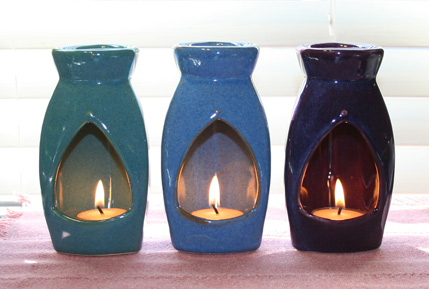 Aromatherapy means “to treat with aroma through inhalation.” Although there are other applications for Aromatherapy, if you would like to be proactive about your health and wellness, and particularly the state of your emotions, then diffusing essential oils is the most practical and effective way to enjoy their benefits!
Aromatherapy means “to treat with aroma through inhalation.” Although there are other applications for Aromatherapy, if you would like to be proactive about your health and wellness, and particularly the state of your emotions, then diffusing essential oils is the most practical and effective way to enjoy their benefits!
Why inhale essential oils in the first place? Because essential oils affect the brain and the brain affects the rest of us! Essential oils, naturally, have the ability to help us by bringing about calmness or alertness. They can stimulate appetite or a feeling of being full. They can help us feel romantic, grounded, and empowered. They bring back memories and help release trauma. In short, essential oils affect the way we feel and the way we feel affects everything!
Below is a list of 10 pleasant-smelling, Therapeutic Grade Essential Oils to diffuse and enjoy!
Cassia – This oil is antibacterial, antiviral and antifungal, making it a wonderful oil to have in your breathing space when people are coughing all around you. And it smells a little like Candy!
Clary Sage – This oil is believed to be beneficial for hormone balance, insomnia, and other symptoms of PMS. You may find it calms you, making it a wonderful oil to diffuse during stressfull [and hormone-upset] times!
Cedarwood – An oil high in sesquiterpenes which means it can affect the emotion centre of the brain. It also encourages the pineal gland to release melatonin which fosters deep sleep. Breathe in this oil during times of congestion, coughs, and bronchitis.
Frankincense – Diffuse this fragrant oil when you would like to increases spiritual awareness and stay focused when you are meditating. Breathing in Frankincense may also improve your attitude and elevate your spirits!
Geranium – Another great oil for stress. While it calms and balances you, it may help to release negative memories. Diffusing this oil may bring you to a higher level of well-being emotionally so you feel more peaceful and optomistic.
German Chamomile – Diffuse this oil for a “breath of calm” in a busy day! German Chamomile may help you to dispell anger and steady your feelings bringing you back to a clear, calm state of mind, helpng you to feel better emotionally and to sleep well.
Lavender – This wonderful oil is well known for its calming, relaxing and balancing effect on the emotions. These properties make it a good oil to diffuse when you are dealing with nervous tension, high blood pressure or depression. Diffuse this in the bedroom for a good nights rest.
Lemongrass – This oil is fun to diffuse because it helps to make one more intuitive. It is also purifying and a natural insect repellent. Diffuse it to stay awake and feel less irritable!
Ylang Ylang – This relaxing fragrance balances male-female energies. It seems to give you what you need to come into balance. It brings your energy up if it is low and helps to calm you if you need grounding! It also has aphrodisiac properties. Think: calm, balance, confidence, peace, joy.
Peppermint – This fresh cool-scented essential oil is known as “The Happy Oil”. If you are on a weight-reduction diet, you may like to know that Peppermint has been studied for its ability to affect the brain’s satiety center; the part of the brain that makes us feel full after we’ve eaten enough! It’s also good for headaches, focusing, and depression and can help clear the sinuses!
These comments are not meant to diagnose, treat nor replace conventional medical treatment.
References:
Essential Oils Integrative Medical Guide by D. Gary Young
Aromatherapy for Common Ailments by Shirley Price
Aromatherapy For Dummies (I couldn’t resist!)
Information complied by: Lori Gosselin Lori has been studying and sharing information on essential oils since 1997. She has witnessed many profound changes in people when they begin diffusing essential oils into their everyday lives. Together with her family she started Terra Cotta Pendants in 2003. Terra Cotta Pendants, the “diffusers that you wear”, allow you to experience the desired benefits of a chosen oil, via inhalation, effectively and effortlessly throughout your day.
2006 Dec; 36(7):1123-34.
 Aromatherapy means “to treat with aroma through inhalation.” Although there are other applications for Aromatherapy, if you would like to be proactive about your health and wellness, and particularly the state of your emotions, then diffusing essential oils is the most practical and effective way to enjoy their benefits!
Aromatherapy means “to treat with aroma through inhalation.” Although there are other applications for Aromatherapy, if you would like to be proactive about your health and wellness, and particularly the state of your emotions, then diffusing essential oils is the most practical and effective way to enjoy their benefits!